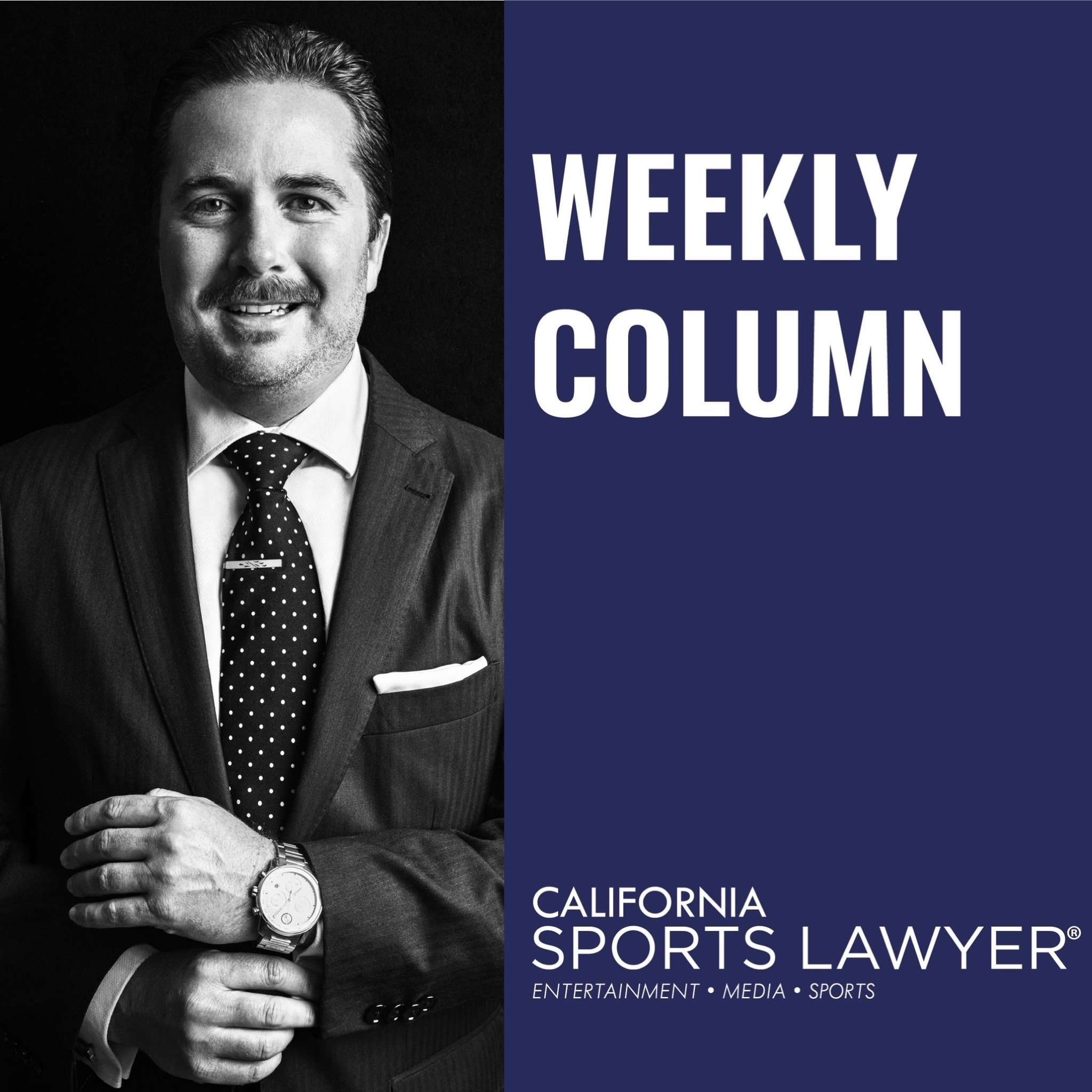California Sports Lawyer® CEO, Founder, and Managing Attorney Jeremy M. Evans column about compliance, copyright, and protections in using generative artificial intelligence platforms.
You can read the full column below. (Past columns can be found, here).
~
The creation of generative artificial intelligence (AI) has been limited by its requirement to collect information to grow and be more helpful. Information from inputs and outputs, training and learning models, and engagement with the human race. The aforementioned is also limited by intellectual property (IP) protections, specifically copyright, trademark, trade secrets, and patents.
In other words, AI does not exist in a vacuum. AI and specifically generative AI, is reliant on humans to work and work well. AI is also subject to existing and future laws yet to be made.
Too often, some people might assume that because something is online it is free and useful. It may be useful, but it sure is not free. This is why piracy, privacy, deepfakes, and legislation geared towards protecting humans and children has skyrocketed towards protection in the internet and digital age. This includes the entertainment, media, and sports industries, specifically with policy advocacy from the Writers Guild of America, the President and First Lady of the United States of America, and in California.
Unfortunately, AI can be and, in some circumstances, exclusively reliant on copyrighted, trademarked, and other IP-protected information to grow. Fortunately, AI has been able to grow in an exponential way in a short period of time without many restrictions. Many should be able to see that a moderated approach is best to manage AI and its expectations and involvement with humans as a tool created by humans for the use of humans.
Generative AI companies have been sued by unions in Hollywood for copyright infringement and surely others who want to protect their copyrighted information and also secondarily assure that their jobs are secure. Meaning, a generative AI system trained on copyrighted information would be able to easily re-create derivatives much quicker than a human mind (e.g., a derivative work is a creation that is based on or derived from one or more preexisting copyrighted works, like a prequel or sequel to a movie, etc.). There is also a cost savings assuming the AI program is less expensive than the human capital.
Generative AI companies and their leaders should look to the seminal Google Books case as an example. In Authors Guild v. Google, Inc., 804 F.3d 202 (2d Cir. 2015), the U.S. District Court and Court of Appeals held in favor of Google citing the fair use doctrine as reason for allowing Google to continue to allow its search functions to show highlights of books. Fair use is a legal doctrine that allows people to use small parts of copyrighted material without permission, as long as the use is limited and reasonable, and usually for purposes like: education, commentary or criticism, news reporting, or research. Fair use is not advisable as a business strategy since results are often mixed and unpredictable, but it is a set of laws and rules to be familiar.
In the Google case, the court reasoned that the use of copyrighted works was highly transformative (search and research, not consumption), no significant harm to the market for the original works, and the displaying snippets of books did not replace the need to buy or read the actual books. As it turns out, Google helped promote books, while the digitalization of books through Audible, Spotify, and others has increased consumption in a different medium.
However, the Google case set an important precedent for how fair use can apply to large-scale digitization projects, especially when they enable search and access without replacing the original copyrighted work. The fundamental turning point for generative AI is that it not only enables searches, it produces results based on those searches (e.g., inputs and outputs). The equivalent would be if Google Books wrote new derivative works and books based on a search. It is of note that platforms like ChatGPT, Gemini (owned by Google), and others are quickly replacing Google Search. As it turns out, predictably, people prefer getting answers to search results.
Generative AI is answers driven. Google Search is an information provider; generative AI is an information collector that can create and provide answers. There are two sides in the current dispute between creators, copyright owners and generative AI companies. The generative AI companies and platforms would prefer an expanded fair use protection by the law and/or courts. Creators and copyright owners would prefer to approve and/or be paid a licensing fee for their work. The end result may indeed be the platforms paying for use of copyrighted works and/or protection from creating derivative works through AI training models and restrictions.
Generative AI platforms do have restrictions currently, but the models are not yet independent enough to restrict all infringement. Such companies will have to look for ways to save the business model. AI is a powerful and fun tool, but its limitations are just as important.
~
About Jeremy M. Evans:
Jeremy M. Evans is the Chief Entrepreneur Officer, Founder & Managing Attorney at California Sports Lawyer®, representing entertainment, media, and sports clients in contractual, intellectual property, and dealmaking matters. Evans is an award-winning attorney and industry leader based in Los Angeles and Newport Beach, California. He can be reached at Jeremy@CSLlegal.com. www.CSLlegal.com.
Copyright © 2025. California Sports Lawyer®. All Rights Reserved.





